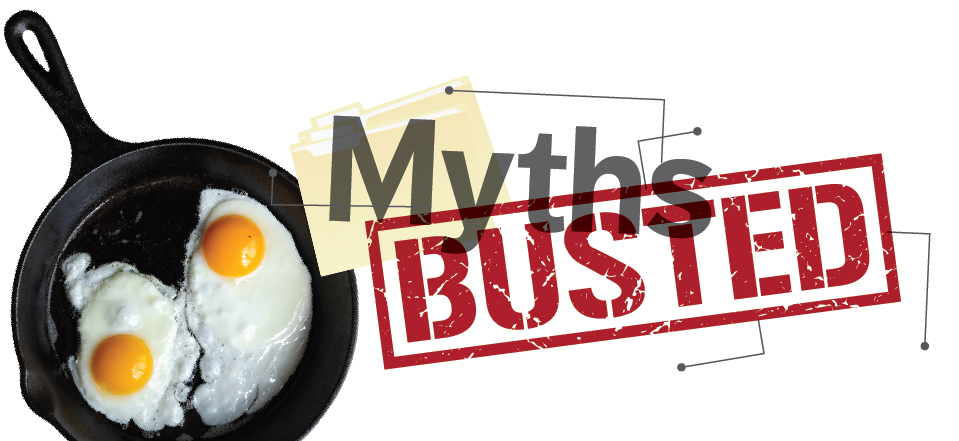Take the Driver's Seat: Reduce Your Cholesterol
August 22, 2023By: Amy Bennett
Categories: Cardiac, Live Healthy, Nutrition, Prevention

Keeping your cholesterol in check may seem like a challenge. After all, having to read nutrition labels, limit saturated and trans fats, and get aerobic exercise all affect your cholesterol levels. High cholesterol can lead to serious health problems, such as heart disease, stroke and peripheral artery disease. Yet, cholesterol isn’t all bad. It helps build cells, digest food and make hormones.
Think of keeping your cholesterol in check like keeping up with your vehicle maintenance. Your car runs better when you do routine maintenance. When you take the driver’s seat with your cholesterol, you can improve your health and well-being.
What Is Cholesterol?
Cholesterol is a fat-like substance produced by your liver. It travels through your bloodstream. There are two main types:
- LDL cholesterol: LDL cholesterol is often called the bad cholesterol. You want your LDL low because if it builds up as plaque in your arteries, it can increase your risk for heart disease
- HDL cholesterol: HDL cholesterol is the good kind of cholesterol. You want your HDL high because it absorbs LDL from your arteries and carries it to your liver, where it’s broken down and processed, protecting you from heart disease
There is one last piece – triglycerides, which store excess fat from your diet. A combination of elevated triglyceride levels, low HDL and high LDL can increase your risk for cardiovascular disease, so you want to keep your triglyceride levels low.
Lower Cholesterol With Diet
Fats most associated with high cholesterol are saturated and trans fats, so replacing foods that have these fats with healthier options can lower your cholesterol levels.
Foods High in Saturated or Trans Fats
- Baked goods
- Beef fat
- Cheese and other dairy products made from whole or reduced-fat (2%) milk
- Cream, butter and lard
- Fatty beef
- Fried foods
- Frozen pizza
- Lamb
- Nondairy coffee creamer
- Pork
- Poultry with skin
- Processed meats
- Refrigerated dough
- Stick margarine
Healthy Options
- Fruits
- Lean fish and meats
- Low-fat dairy products
- Nuts
- Poultry
- Vegetables
- Whole grains
Cholesterol and Carbs
In addition to the fats in your diet, highly processed carbohydrates play a role in high cholesterol. Carbohydrates give your body energy, but getting more than 60% of your daily calories from carbohydrates can increase your cholesterol levels because your liver thinks it’s time to make more cholesterol. Try to keep white bread, sugary cereal, crackers and other processed foods on the grocery store shelves.
Cholesterol and Eggs
Although eating cholesterol-rich foods such as eggs has long been blamed for causing high cholesterol, researchers and doctors now realize most of our body’s cholesterol comes from our body making it in our liver in response to excess carbohydrates and saturated fats. Though high in cholesterol, eggs are low in saturated fat so eating eggs is fine, if you do it in moderation.
Treatment Options
Test Goal Levels
Total cholesterol
under 200
LDL (bad) cholesterol
under 100
HDL (good) cholesterol
over 60
Triglycerides
under 150
Although your cholesterol numbers are important (see graphic), they don’t tell the whole story.
Cholesterol Risk Factors
Talk with your primary care provider about your risk factors for high cholesterol, which include:
- Cigarette smoking
- Diabetes
- Family history of cardiac disease at a young age
- High blood pressure
- Kidney disease
Lifestyle Changes
Because most people have high cholesterol due to lifestyle, your primary care provider will likely suggest starting with a few lifestyle changes, including:
- Getting regular exercise: Strive for 30 minutes of moderate exercise (makes you sweat) five times a week or a total of 150 minutes each week
- Following a diet low in saturated fats: The American Heart Association recommends saturated fats make up 5%-6% of your daily calorie intake
- Losing excess weight: Losing as little as 5%-10% can help improve your cholesterol
Cholesterol Medication
Even if you make lifestyle changes, you may need statin therapy. According to the American Heart Association, statins work in the liver to prevent cholesterol from forming. This reduces the amount of cholesterol circulating in the blood. Statins are most effective at lowering LDL, but they also help lower triglycerides and raise HDL cholesterol. They have some rare side effects, including dizziness, headaches, muscle pain, nausea and stomach upset.
Connect With a PCP
Since you’re taking the driver’s seat with your cholesterol, steer toward a Meritas Health primary care provider. One of our PCPs can talk with you about your cholesterol levels and risk for disease and refer you to a Meritas Health cardiologist, if needed. With their guidance, your engine will be purring in no time.



